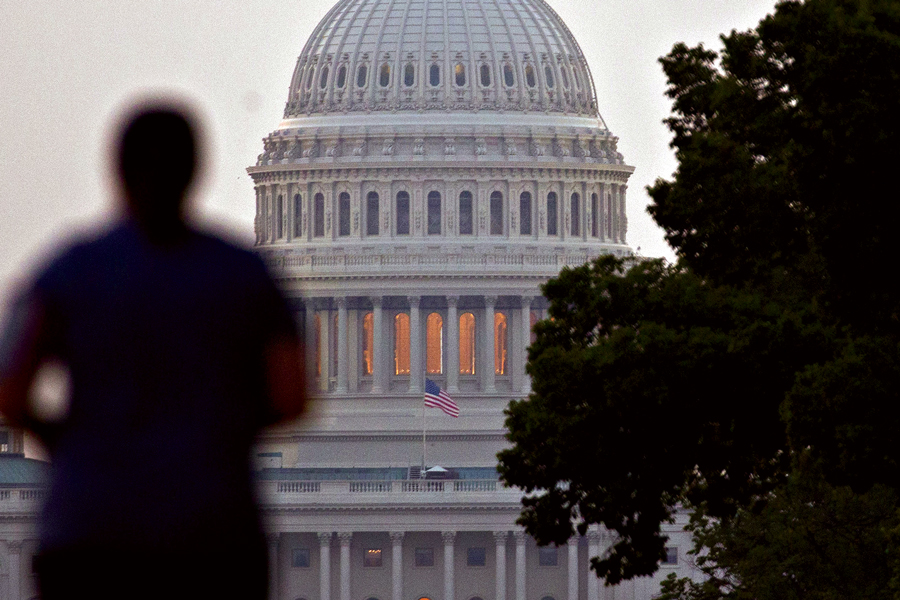

Retirement plan advisers could see an uptick in demand for their services as major retirement-savings legislation becomes law.
Congress this week approved the Setting Every Community Up for Retirement Enhancement Act, or SECURE Act, as part of legislation to fund the federal government through September. President Donald J. Trump was expected on Friday to sign the spending bill, which averts a government shutdown.
The SECURE Act represents the biggest change to retirement policy in more than a decade. One of its major provisions would allow businesses of differing sizes, sectors and locations collectively to offer retirement programs to their workers under so-called open multiple employer plans.
The bill also increases tax credits to $5,000 from $500 annually for three years for small businesses that launch new retirement plans.
The changes are designed to increase the number of employers — especially small businesses — that provide retirement savings options for their workers. The idea is that small firms that don't sponsor plans are more likely to do so if they band together with other small businesses.
Investment advisers might be able to insert themselves into the process.
"To the extent retirement plan advisers can be a catalyst or an organizer for putting plans together, this could be a business opportunity," said Christopher Jones, chief investment officer at Edelman Financial Engines. "We'll have to see how aggressively plan sponsors and industry embrace" the new approach.
Economies of scale
The most powerful aspect of the multiple employer plans, or pooled employer plans, is the economies of scale they will introduce, according to David Whaley, a partner at the law firm Thompson Hine. For instance, a new $1 billion retirement plan could be created from the accumulation of many $10 million plans.
"It increases the ability of more large-plan investment advisers to have access to more large plans," Mr. Whaley said. "It opens up the ability of an investment house to offer a plan to all of its clients."
Smaller investment advisers who work with small businesses also may find new opportunities, said Mike Hennessy, chief executive of Harbor Crest Wealth Advisors.
"For instance, if an adviser's 'secret sauce' is developing and overseeing low-cost plans for small businesses, then scalability is now on the table in a manner that didn't exist before the SECURE Act," he said.
Mr. Hennessy, who works with small business owners, will start offering 401(k) advisory services next year, thanks in part to the changes introduced by the SECURE Act.
"It increases your stickiness" with small-business clients, Mr. Hennessy said. "It's helping them navigate that intersection of their personal and business finances."
New opportunities
Small businesses may not understand the ramifications of the SECURE Act, and financial advisers can help there, too, said Eric Stevenson, president of Nationwide Retirement Plans.
"Advisers will play a critical role helping their small business clients navigate and leverage these new employee benefit opportunities," Mr. Stevenson said in a statement to InvestmentNews.
The changes introduced by the SECURE Act could lead to 700,000 more employees saving for retirement at work, according to the American Council of Life Insurers.
"We think this will be transformational for employer-sponsored retirement plans," said Rick Jones, a senior partner in the retirement solutions group at Aon.
But advisers will have to close the deal, Mr. Hennessy said. He pointed out that other attempts to increase the number of workplace retirement plans have fallen short of expectations.
"Absent advisers getting in there and selling the plans, I'm hesitant to say we'll see a massive uptake of plan adoption by employers on their own," Mr. Hennessy said.

Relationships are key to our business but advisors are often slow to engage in specific activities designed to foster them.

Whichever path you go down, act now while you're still in control.

Pro-bitcoin professionals, however, say the cryptocurrency has ushered in change.

“LPL has evolved significantly over the last decade and still wants to scale up,” says one industry executive.

Survey findings from the Nationwide Retirement Institute offers pearls of planning wisdom from 60- to 65-year-olds, as well as insights into concerns.
Streamline your outreach with Aidentified's AI-driven solutions
This season’s market volatility: Positioning for rate relief, income growth and the AI rebound
